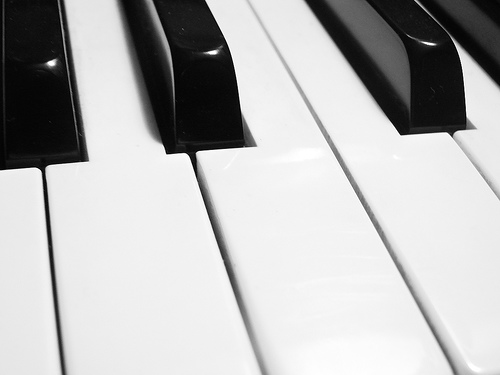A digital keyboard can be an excellent way to bring music into your home without breaking the bank (or your floor). Advances in musical technology allow newer model digital keyboards to sound indistinguishable from acoustic uprights to all but the most well-honed ear. The best digital pianos are those with a full 88 key keyboard that has weighted action, giving each key the touch and feel of an acoustic model. Not only is this an important consideration for making the keyboard feel more authentic, a model that demonstrates this attention to detail is likely to excel in other areas, too, like sound quality and durability.
Here are our reviews of the best 88 key weighted keywords:
Kawai CE220
High sound quality is paramount to the Kawai brand, and when they released the CE220 in 2012, it set a new benchmark in digital piano sound realism. Each note on the piano was individually sampled from a Kawai acoustic grand piano. This gives each note a true-to-life resonance and tone quality. The keyboard (see full specs) got all of the functions a professional musician would need, including an onboard 2-track MIDI recorder and a USB port for easy loading and saving. The split keyboard capability allows you to use two separate tones, with individual volume sliders to balance the voices on the fly. Advanced musicians will love the customizable touch sensitivity and sound editing functions, while beginners will be grateful for the intuitive controls and easy to read LCD display. This is one of the best 88 key weighted keyboards period.
Yamaha DGX 660
The speakers on this keyboard are top-notch, and the piano sound is clear and resonant with a wide dynamic range unmatched by most digital keyboards on the market. It’s also loaded up with all the non-piano sounds you could want, with hundreds of voice options, while the wide away of reverb, chorusing, DSP, and EQ settings let you customize your sound. The DGX650 is heavier and perhaps less portable than some of the options on this list, but it’s likely the best 88 key weighted keyboard for a home or private studio—and with the recording and dual-player mode capabilities, it’s a fantastic piano to either learn or teach on.
Roland JUNO-DS88
The JUNO-DS88 from Roland is designed for the stage and is perfect for professional keyboard players in all styles and genres. The ivory keys on this keyboard (see full specs) give it a true acoustic feel, but in a package that weighs less than 50 pounds so it’s super-portable. The on-board features really expand your creative options beyond what you’d get from a traditional piano, too. There’s an impressive selection of included sounds, most of which sound natural enough to use on-stage. You also get lots of options for customizing your tone right on the keyboard, saving you the need to use an external mixer for things like layering and looping. The JUNO-DS88 also has the ability to grow with you, with tons of free patches on Roland’s website giving you access to even more sounds and effects.
Casio Privia PX160BK
Casio as a brand is still battling the association with the children’s keyboards it’s best known for—but the Privia PX-160 is anything but a toy. It’s an especially remarkable instrument when you realize it sells for its price range. The simplicity of the design makes it highly functional for beginners and advanced players alike, and though it has only 18 tones—compared to the hundreds offered by more expensive pianos—the focus here is on quality and affordability rather than bells and whistles. The streamlined construction also makes it the lightest piano on this list, weighing in at only 25 pounds. This might be considered a cheap 88 key weighted keyboard, but “cheap” is only in price, not quality.
What is Weighted Hammer Action?
I mentioned above the importance of looking for a piano with weighted action. It’s true that even acoustic pianos are going to have a different feel across brands and construction—so why is it so important that a digital keyboard feel like an acoustic? The answer has to do with how pianos make their sound. In a traditional piano, a hammer strikes a string inside the body. The lower the pitch, the longer the string. This means that a note in the lowest octave of the instrument will require more energy to produce a sound, giving it a “heavier” feel, than a note in the upper range. Most often, a comparison is made to acoustic pianos when praising a keyboard’s action, but the importance of weighted keys has more to do with the piano feeling consistent with itself than with a one-to-one comparison against an upright or grand model.
Features to Consider
Once you’re into the realm of 88 key fully weighted keyboards, the highest price tag doesn’t necessarily equate to the best-quality instrument; it says more about the extra features and tools that have been loaded into the piano. Nearly all digital keyboards come with some kind of sound library, giving you a variety of tonal options to work with besides the standard piano sound. They also frequently come with production effects, like compression or reverb. Generally speaking, while it’s often fun to play around with all the different tones, these kinds of functions are only necessary for professional musicians.
Even among those using the instrument professionally, a lot of the specialized functions available on keyboards aren’t necessary for every profession.
If you mostly play live shows, you’re likely more concerned with the instrument’s weight, durability, and portability than you are with its advanced editing capabilities, and might be drawn to the Roland JUNO-DS88.
A music instructor, on the other hand, will have more use for recording and playback capability, and will be looking for split-keyboard functionality; the Yamaha DGX 650 could be the perfect keyboard for her studio.
If you’re a jack of all trades, the Kawai’s got you covered on all the bases, and the extra expense will be well worth it. Carefully considering what you need out of your piano before making your purchase will ensure that whatever you buy, it’s money well spent.
In the end, what defines the best 88 key weighted keyboards will be your personal preference.








